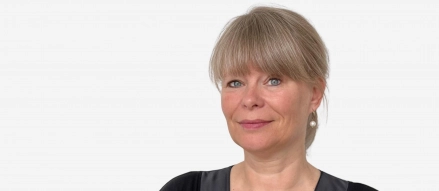SDG no. 12 addresses our footprint on the planet based on our use of natural resources, the way we recycle and how we implement an optimal production supply chain. Unfortunately, the way we handle this today is very destructive, when looking at the impact on our planet.
Rapid industrial and technological development over the past generations have affected the production and consumption patterns of today’s society. It has resulted in an environment that suffers from our behaviour. Development and progress are inevitable and by adopting innovative approaches we might be able to turn our destructive footprint into a more sustainable and responsible one.
We can all contribute positively to SDG no. 12, simply by being selective, thoughtful, and sustainable in our way of consuming. Does the corporation I am buying from reflect my values? What do they do to minimize use of natural resources? How are they efficient? Do they think sustainably? As individuals we can also reinforce recycling and adopt more sustainable ways of consuming all kinds of products.
The world’s population is growing at a fast rate and with it a constant increase in production and consumption. It is important to raise the importance of sustainable production; how far are products shipped and could it be possible to buy locally and following the seasons? Look at food waste and consider if your consumption is necessary or if the leftovers can be reserved for better use. Reducing the usage of electricity is a good and easy way to minimise your individual footprint. Small changes such as switching to more efficient light bulbs can make all the difference.
Let’s imagine a scenario where the earth’s population is 9.6 billion by 2050; we know that we will need more than two planets to provide enough resources IF we maintain the same lifestyles as today. This illustrates why it is extremely important to change our way of living, starting today.
On the upside, this is an SDG that states very clearly what impact leads to what consequences. By understanding these consequences, we know where we all can contribute, even by changing small things. It is important to maintain a mindset were “doing more and better, with less or fewer” is essential.
Our initiatives at Mazars globally include, among others:
- Initiatives to support this include limiting our travel, promoting the use of greener vehicles and public transportation, more accurately measuring our global carbon footprint, reducing our waste, encouraging remote working and compensating for our plane trips by supporting reforestation initiatives.
- Many of our offices in Europe (Belgium, The Netherlands and France) carry sustainability certificates that state how the buildings keep their emissions low (Mazars in Paris is HQE certified)
- Mazars in South Africa has set their focus on measuring what they can within their office environment with tangible results (water consumption -60% and electricity -25% after 6 months – pre-covid).
Locally, for Mazars in Denmark we do the following:
- Raise awareness on recycling electronical devices and ensuring that old hardware is given to others in need.
- Minimize food waste in our canteen, e.g., by using the “imperfect” vegetables and buying reusable plastic boxes with the leftovers of the day. Furthermore, all food waste is measured and analysed (pre-covid).
- Focus on low consumption of office equipment (asking ourselves; “do we really need this?”) as well as implementing low energy light bulbs in the office.
- Secure that all branded materials are produced in a recycled way, e.g., bags produce by plastic bottles, t-shirts produced by recycled polyester, etc.
- Minimize prints in hard copy, including prints on both sides of the paper. In general, we try to minimize hard copy documentation and keep all documents digital.
- Focus on trash to secure that everything is sorted and recycled, e.g. organic, glas, plastic, paper, electronical equipment, batteries, etc.
Oftentimes, even though we all want change to happen, it is difficult to change our behaviours. The responsibility to act is left to “the others”. However, with this SDG it is fully up to you to become active and take responsibility in order for change to happen.





